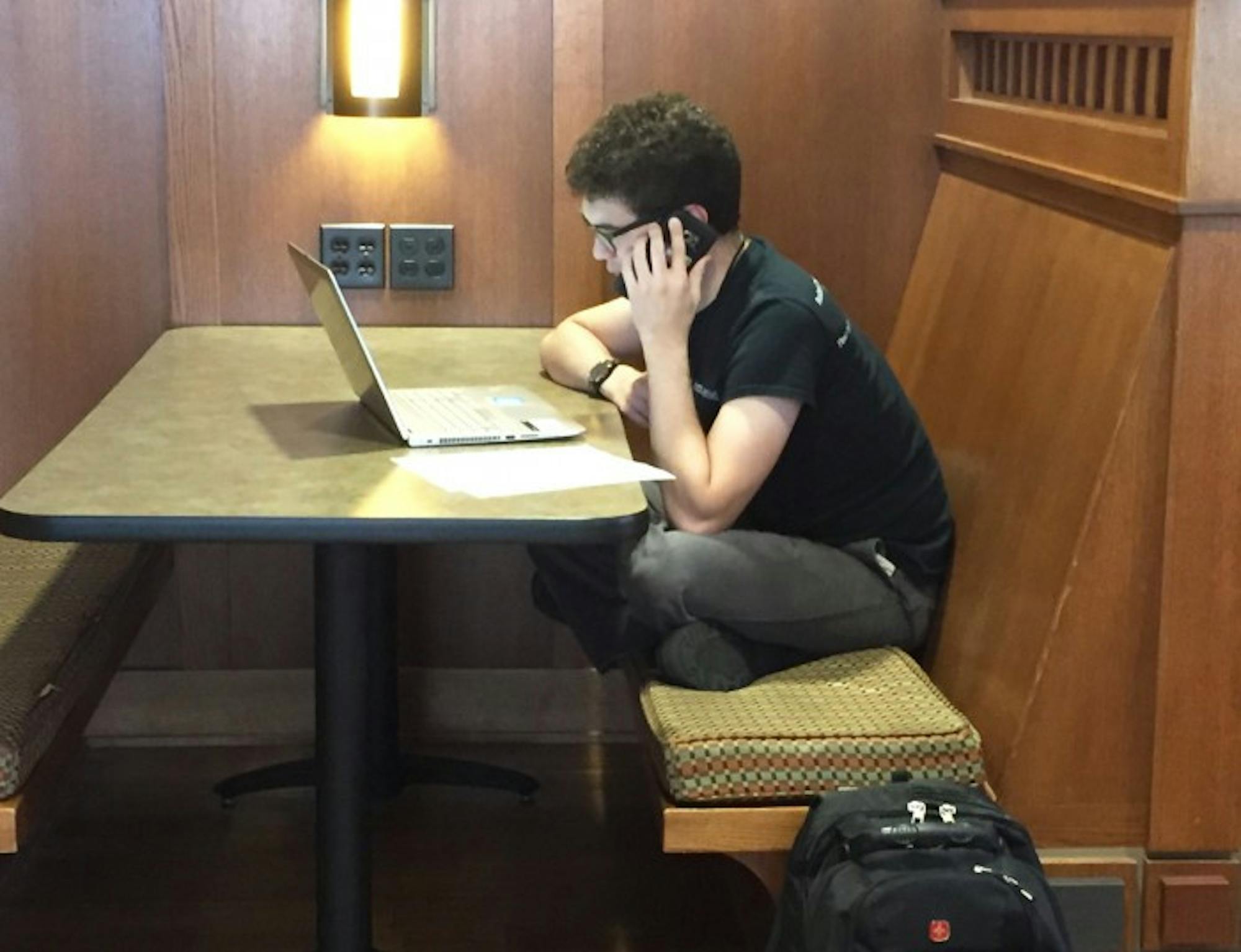Notre Dame students, faculty and other community members rallied around those at the University affected by Tuesday’s announcement that President Donald Trump will phase out Deferred Action for Childhood Arrivals (DACA) in six months’ time by contacting representatives around the country at a call-in Wednesday.
The Student Coalition for Immigration Advocacy (SCIA) hosted the call-in to support undocumented immigrants and used it as an opportunity to educate the Notre Dame community about DACA, which affects over 800,000 undocumented immigrants in the U.S.
According to a DACA fact sheet SCIA gave those who attended the call-in, DACA is a Department of Homeland Security policy signed into effect by former President Barack Obama, and it allows certain undocumented immigrants under 30 years old who are either enrolled in or have graduated from school without a felony conviction to delay their deportation for two years at a time and obtain a work permit. DACA recipients were brought into the United States as children, pay federal taxes and are not allowed to vote or receive federal benefits.
Junior and DACA beneficiary Kevin Perez, the marketing director of SCIA, said it is heartening for him and other DACA students at Notre Dame to see support for the DACA community.
“It means a lot. We’ve already had over 100 people in the first hour,” Perez said. “And it’s good to know that we have this support from our fellow classmates because some of us are in this situation — me, personally, I have DACA — and it’s just very encouraging to see students and faculty coming out.”
Junior and DACA beneficiary Gargi Purohit, the president of SCIA, said the call-in was a chance for allies to “put their words into action.”
“It’s a great way to see people actually taking action, because so many of us have said, you know, they support us and that they’re here for us, but we also need people to put their words into action,” Purohit said. “So it’s coming out to these events and calling representatives. And also, it’s great to see people continue to have interest in it. So we’re giving them other resources and tools to continue to do this by themselves as well.”
Rescinding DACA would be problematic, junior Jackson Hignite said, because several DACA beneficiaries can’t remember living anywhere other than the U.S.
“DACA is an important program,” he said. “Even if it’s not an executive program you’ve gotta, in some way, protect the 800,000 kids that came here — some legally, some illegally — that are documented through this program, who don’t know any other country besides America.”
Sophomore Amber Grimmer said the call-in was important not only in terms of reaching out to representatives, but also creating a conversation about DACA on campus.
“This is all in the spirit of democracy,” she said. “First of all, just the solidarity — I’m incredibly thankful for everyone just showing up to support the students at our school. That means a lot to be in solidarity. And also [we want] to create discussions. Because now everyone is talking about it in this room and maybe in other places, too.”
Purohit encouraged all DACA allies to consider the entire undocumented community in their advocacy.
“A lot of allies, when they’re talking about DACA, at times they will demonize our parents and I think that’s just the completely wrong message,” she said. “ … Not to mention, not all dreamers came here illegally. I came here legally — I think through LaGuardia — on a visa with my mom, so there’s just a lot of things that people need to keep in mind when they’re using their language.”
Those affected by the Trump administration’s announcement may also still be processing the information, Purohit said.
“Honestly, I didn’t really have time to process my feelings yesterday because I was so busy running this that I still don’t think it has completely hit me yet on the severity of this decision,” she said. “I’m trying to run around and make sure that we get something done before something really awful happens, like some dreamers get deported. So I’m still kind of in a bit of shock.”
After University President Fr. John Jenkins released a statement Tuesday vowing to support DACA students at Notre Dame, discernment and advocacy director at the Center for Social Concerns Mike Hebbeler said it was the kind of Catholic leadership needed at the moment.
“For Fr. Jenkins to make that statement, that demonstrates that commitment to leadership rooted in gospel values and Catholic social tradition that animates our campus community and extends into our local South Bend community,” Hebbeler said.
The easiest way for people to get involved and fight for DACA recipients, Perez said, is to educate themselves about the program.
“We don’t really know what the future holds at this point, but the first thing is just awareness,” Perez said. “Just letting people on campus know that there are students like us here and kind of educating them about immigration law programs like DACA. Because I think a lot of people on this campus don’t really know what it is or think they do but don’t know all the facts or details about it.”
Hebbeler said he would encourage people to not only educate themselves about what DACA is, but also to try to get to know one of the community members with DACA status.
“My response to people who are unfamiliar with it, or may be apathetic about it or who even oppose it, is to get out into the community or, on campus, find a way to connect to people who are directly affected by it and meet them,” Hebbeler said. “And in that relationship building, there can arise an understanding of a shared humanity … and in that encounter, I think, not only can minds be informed, but hearts can be changed.”













